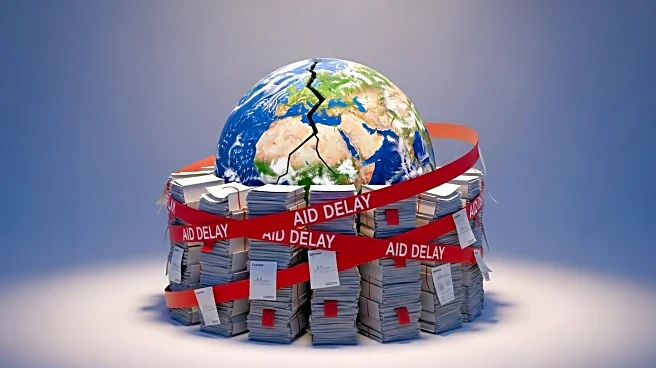What's Happening?
The U.S. State Department has not yet approved a declaration of humanitarian need following a devastating earthquake in Afghanistan that killed over 2,200 people and left tens of thousands homeless. This declaration is typically the first step in authorizing U.S. emergency relief. Despite extending condolences, the State Department has not announced any plans to provide aid. The delay comes amid President Trump's policy of ending aid to Afghanistan, citing concerns over funds potentially benefiting the Taliban. The U.S. Agency for International Development, which previously facilitated aid, has been closed, further complicating relief efforts.
Why It's Important?
The lack of U.S. aid highlights a significant shift in foreign policy under President Trump, who has prioritized preventing aid from reaching the Taliban. This decision impacts Afghanistan's ability to recover from one of its deadliest earthquakes in years. The U.S. was previously the largest aid donor to Afghanistan, and the cessation of aid could exacerbate humanitarian challenges. Other countries have stepped in to provide assistance, but the scale of the disaster requires more substantial international support. The situation underscores the broader implications of reduced U.S. involvement in global humanitarian efforts.
What's Next?
The State Department's decision not to reverse the aid policy suggests that immediate U.S. assistance may not be forthcoming. This could lead to increased pressure from international organizations and allies urging the U.S. to reconsider its stance. Humanitarian groups may continue to lobby for the release of U.S.-funded medical supplies currently in storage. The ongoing humanitarian crisis in Afghanistan may prompt further discussions on the ethical responsibilities of global powers in disaster relief.
Beyond the Headlines
The decision to withhold aid raises ethical questions about the balance between political strategy and humanitarian needs. It also highlights the potential long-term consequences of reduced U.S. engagement in international aid, which could affect global perceptions of American leadership in crisis situations. The situation may influence future U.S. foreign policy decisions regarding aid distribution and diplomatic relations with countries experiencing humanitarian crises.










